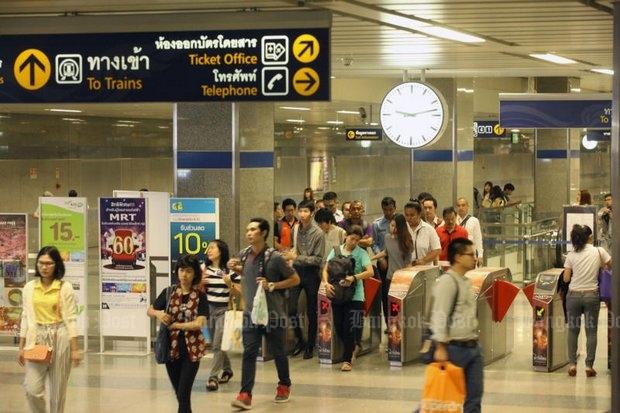The Cabinet yesterday approved a draft memorandum of under-standing (MoU) with the Chinese government to construct double-track railroads between major logistics centres in Thailand.

“The MoU and the destinations [as proposed by the Transport Ministry] have been approved by the Cabinet and the project will now be up for deliberation by the NLA. But the part about the money and how much both countries will invest has not been discussed yet,” Prime Minister General Prayut Chan-o-cha said. The Cabinet also approved the International Headquarters (IHQ) and International Trading Centre (ITC) promotion scheme along with supporting tax and non-tax incentive packages.
Government Spokesman Yongyuth Mayalarp said the standard-gauge route as proposed was from Nong Khai, the northernmost border province in the Northeast, through Nakhon Ratchasima’s provincial capital and Saraburi’s Kaeng Khoi district to Map Ta Phut port in Rayong province.
That is going to be 734 kilometres long and a spur from Kaeng Khoi to Bangkok would be 133km long.
The Transport Ministry has said the project covered by the MoU could be worth about Bt400 billion. It would come under the Bt3-trillion infrastructure budget for 2015-22 that has been approved by the military’s National Council for Peace and Order.
A committee will be set up to oversee the investment, research, design and track-system agreements between the two countries. It will be co-chaired by the Thai transport minister and the chairman of China’s National Development and Reform Commission.
Yongyuth also said China was interested in buying another lot of rice and rubber from Thailand. The Cabinet approved an MoU with the Chinese government to buy agricultural products from the Kingdom. Agencies would provide more details later, while the Commerce Ministry would be in charge of the transaction.
The IHQ and ITC scheme was the brainchild of Deputy Prime Minister MR Pridiyathorn Devakula. The Cabinet assigned agencies to make the idea tangible, since the Regional Operating Headquarters (ROH) promotion scheme was limited and there were many regulatory barriers that made the country lose out on investment opportunities.
Foreign investors and companies wanting to set up an IHQ or ITC in Thailand would be awarded more tax and non-tax privileges than for an ROH. The requirements for acquiring the incentives would be less strict.
For example, the criteria for an IHQ to qualify for the tax benefits are paid-up capital of at least Bt10 million, responsibility for an associated company or branches situated in at least one other country, and annual expenses associated with IHQ activities in Thailand of at least Bt15 million.
Upon approval by the Board of Investment, the IHQ or ITC will enjoy reductions in the corporate-income-tax rate on net profit derived from the offshore branches and associated companies and the personal-income-tax rate on salaries for expatriates working with the IHQ or ITC.
There would be many more non-tax breaks, such as easier visa requirements. More details will be forthcoming from the Revenue Department.
Source: http://www.nationmultimedia.com/business/Dual-track-deal-with-China-okayed-30248545.html
